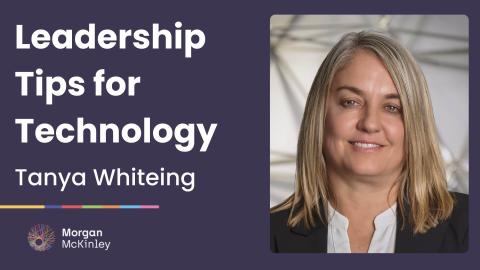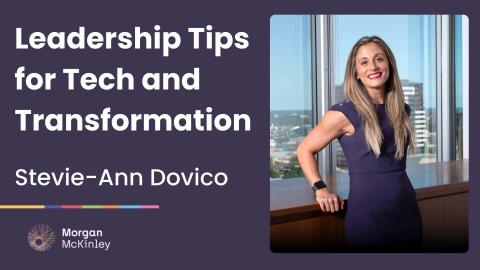Stand out and succeed: Leadership tips for Risk Management - Tanya Gilerman

As part of our ongoing commitment to our specialist communities, we interview accomplished leaders on a monthly basis to bring you insights on their career progression and advice that will help you progress your career further.

Tanya is the Chief Risk Officer for KPMG Australia and a member of the National Executive Committee. In this role she is responsible for risk, regulatory and legal matters as well as broader commercial and business risks associated with the Firm’s growth strategy. Tanya joined KPMG as a graduate, and was admitted to the partnership in 2000 as a partner specialising in the financial services practice. She has extensive experience in auditing and advising ASX listed clients, investment management and finance organisations. She is a member of the Chief Executive Women and also a Non-Executive Director and Audit Committee Chair of Social Ventures Australia, a not-for-profit organisation that works with partners to alleviate disadvantage.
1. What factors do you think have been critical to the success you have achieved in your career?
Firstly, being open and never saying no to opportunities that come up, even if those opportunities are outside my comfort zone because you never know what doors those opportunities will open and what connections you will be able to make. Secondly, approaching things with a positive mindset gives you the personal confidence to take on challenges and I also find that when you are positive people want to interact with you. Lastly, resilience has been one of the most critical factors in my career to-date, we need to be aware that things don’t always go to plan. It’s essential to learn from mistakes and not dwell on them for too long.
2. What's the most valuable piece of advice you have received in your career and how did it help you?
I have received lots of advice throughout my career, I think that the key again is to pursue as many opportunities as possible as you never know where this will land you. Another key piece of advice is mentorship and sponsorship, don’t be afraid to approach a mentor and ask how they have achieved success in their particular area. A mentor can provide insight into the key skills and aptitudes that one needs to develop to succeed. Apart from developing a specific skill set, mentors can also help you develop your professional network. Lastly, the type of person you surround yourself with is crucial. Surround yourself with people who are positive and supportive. As you become more senior you need to be able to rely on a team, you won’t have capacity to do everything yourself, an engaged and skilled team will help to achieve your team and personal goals.
3. What's the most challenging situation you have faced in your career and how did you overcome it?
I have faced many challenging situations in my career, but the most challenging has been finding the right balance between family life and work life, especially when my children were younger. I don’t believe in the existence of some sort of superwoman, in my opinion it is a matter of balancing and recognising where your priorities lie at any given time. There was a time in my career where I decided to take a step back from work obligations so I could physically and emotionally support my children. Having the right flexibility and having the right support from a business perspective allowed me the opportunity to do what I needed to do with my family and then come back to work and pursue my career. Balancing my role as a mother and my work hasn’t always been easy and wouldn’t have been possible without the support of my family.
4. If you were starting your career now, what would you do differently?
If I were starting my career now, I would recognize the importance of mentorship and sponsorship earlier on. I have had some amazing people sponsor me throughout my career, both at the junior end as well as more senior leadership positions. These sponsors have great visibility in regards to what’s happening across an organisation and they can identify either project or roles that you aren’t necessarily aware of or may not have thought about considering. Once you start thinking about why they have encouraged you to consider a certain role, everything starts to come together, you can start building your brand, your reputation and your skillset. Building internal and external relationships early on in your career, I think people tend to underestimate the importance of interpersonal relationships. I wish that someone had encouraged me to start building my network as early as possible. I would also put an emphasis on my health and wellbeing, both physical and mental. As a young grad, you can get sucked into working long hours and going out with colleagues. Since Covid three years ago, we have seen the impact this has had on everyone’s resilience, mental health and anxieties. We're encouraging our juniors to be open with their struggles and to take care of themselves.














